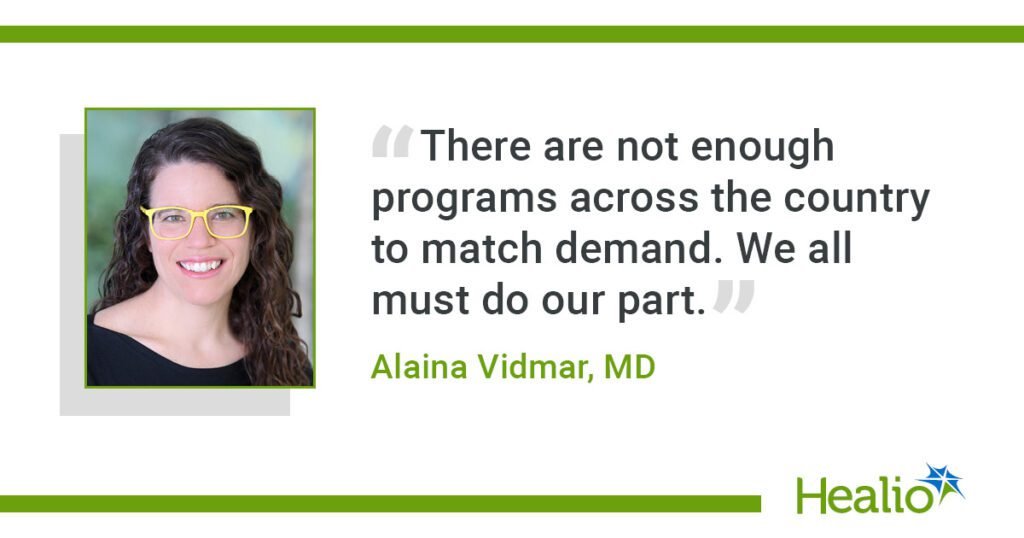Comprehensive Pediatric Obesity Management: An Essential Guide for Clinicians
Key Takeaways:
- Pediatric obesity treatment now includes lifestyle changes, medications, and surgical options.
- Updated guidelines call for all pediatric clinicians to embrace these multi-faceted approaches.
Pediatric obesity is escalating at an alarming rate, with figures indicating that 15% of children were classified as obese in 2018, a significant increase from just 5% in 1960. Projections suggest that by 2050, over half of all children may face this serious health challenge. Dr. Alaina Vidmar, an expert in obesity medicine from Children’s Hospital Los Angeles, emphasizes the complex nature of this chronic condition, exacerbated by genetic and environmental factors.
“Treating pediatric obesity is not simply about the number on the scale; it’s about preventing long-term health complications,” Vidmar states.
Dermatologists: Key Players in Obesity Treatment
Many pediatric dermatologists are uniquely positioned to address obesity-related dermatological conditions such as hidradenitis suppurativa and psoriasis. Understanding this connection allows dermatologists to provide comprehensive care that encompasses both skin health and weight management.
A Multimodal Approach to Pediatric Obesity
In 2023, the American Academy of Pediatrics (AAP) released updated guidelines advocating for a multimodal approach rather than a staged treatment protocol. According to Vidmar, effective treatment of obesity requires customization based on individual patient needs:
- Lifestyle Modifications: Focus on nutritional choices and physical activity, leading to a typical BMI reduction of around 3%.
- Obesity Pharmacotherapy: Recent medications can achieve weight loss of 5% to 15%.
- Bariatric Surgery: In severe cases, surgery may result in a BMI reduction of up to 30%.
"It’s crucial to evaluate each child individually so we can implement the best possible solutions from the start," Vidmar explains.
Recommended Medications for Pediatric Obesity
When pharmacotherapy is necessary, several options are available, each with its efficacy:
- Metformin: Commonly prescribed for type 2 diabetes.
- Orlistat: Approved for children aged 12 and older.
- GLP-1 Receptor Agonists: Includes medications like liraglutide, semaglutide, and exenatide, which are particularly effective for weight management.
These medications should be prescribed considering individual patient circumstances, such as insurance coverage and access.
Surgical Options: An Underutilized Tool
Bariatric surgery remains heavily underutilized, according to Vidmar. She emphasizes the importance of educating families about this option, noting that:
“Surgery is often the best option for severe cases yet frequently overlooked.”
Before undergoing surgery, patients should be placed on a medication regimen while preparations are underway, as the educational process can be time-consuming.
The Role of All Clinicians
Changing the trajectory of obesity in pediatric populations is a shared responsibility. While referral to an endocrinologist is ideal, the reality is that not all families have access to specialized care. Therefore, it is imperative for all healthcare providers, including dermatologists, to engage proactively in obesity treatment.
“All clinicians must do their part; the updated guidelines empower providers from various specialties to address pediatric obesity,” asserts Vidmar.
Conclusion
Pediatric obesity is a multifaceted health issue that requires a three-pronged treatment strategy: lifestyle changes, pharmacotherapy, or surgery, tailored to the needs of each patient. From dermatologists to pediatricians, the responsibility lies with all healthcare professionals to combat this growing epidemic effectively.
For more information on obesity management for children, explore the American Academy of Pediatrics and the Robert Wood Johnson Foundation resources.
References:
- Vidmar A. Comprehensive obesity care in pediatrics. Presented at: The Society for Pediatric Dermatology Annual Meeting; July 23-26, 2025; Seattle.
Stay informed about new pediatric obesity research and resources by signing up for email alerts.


